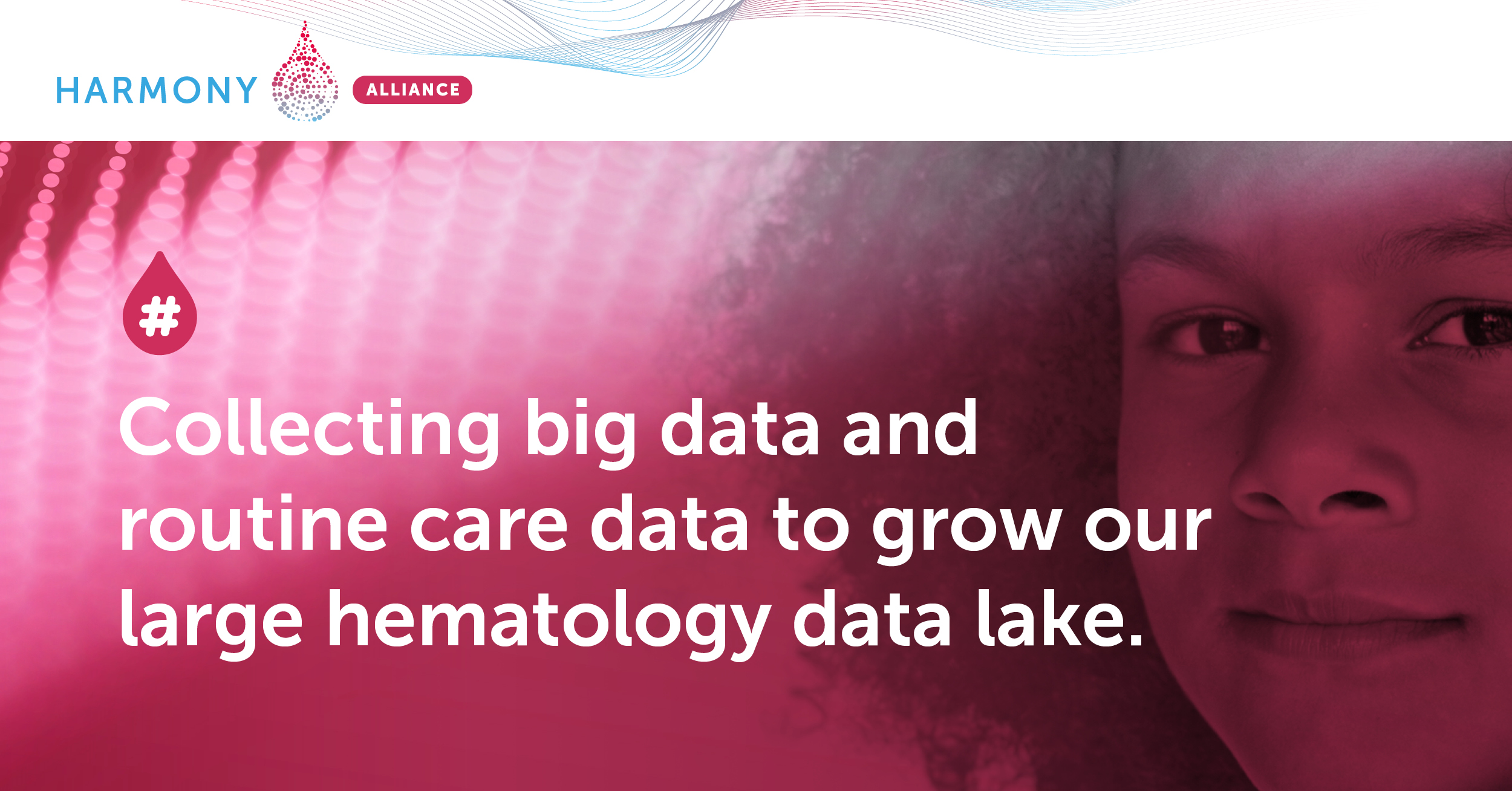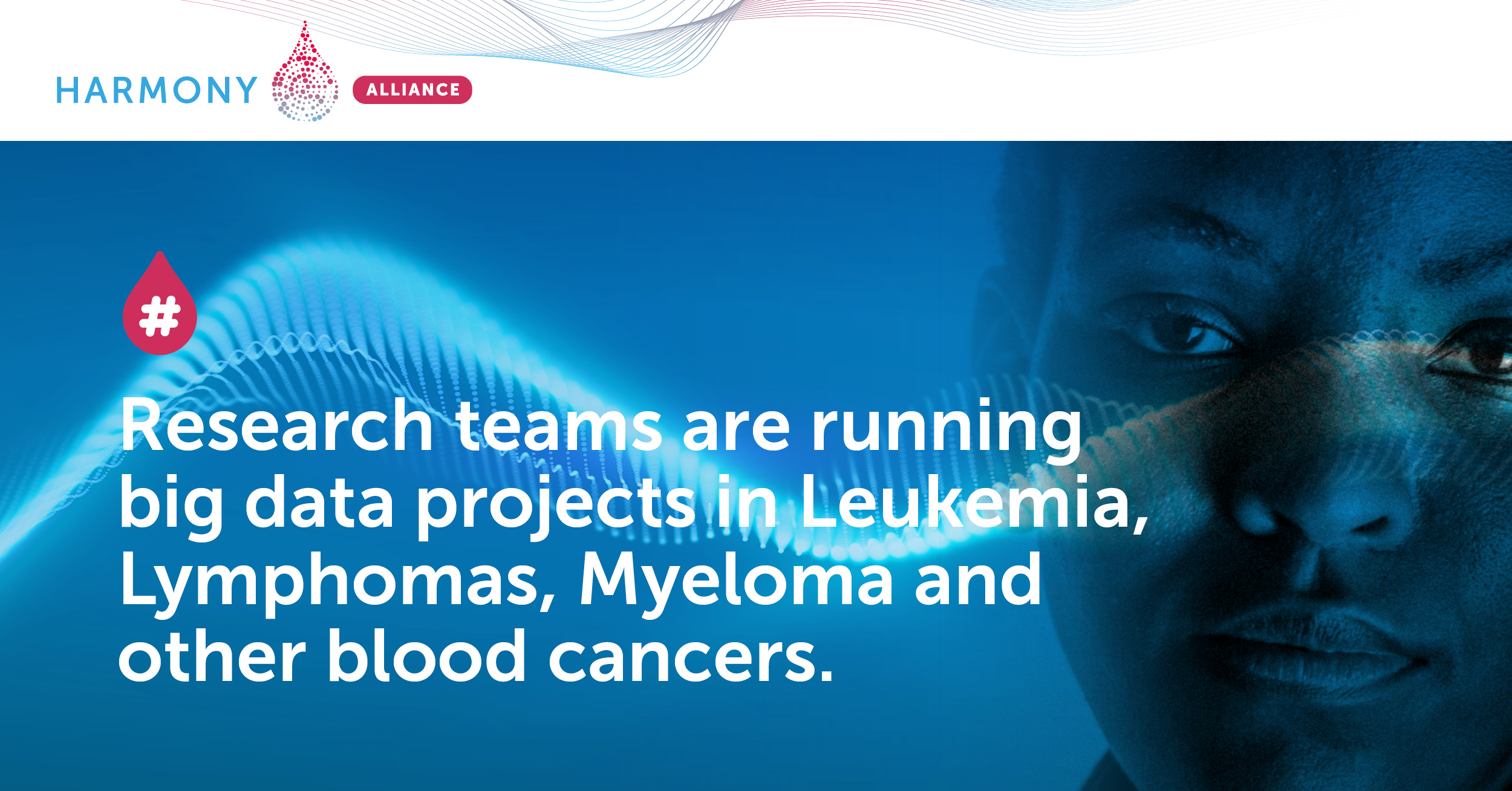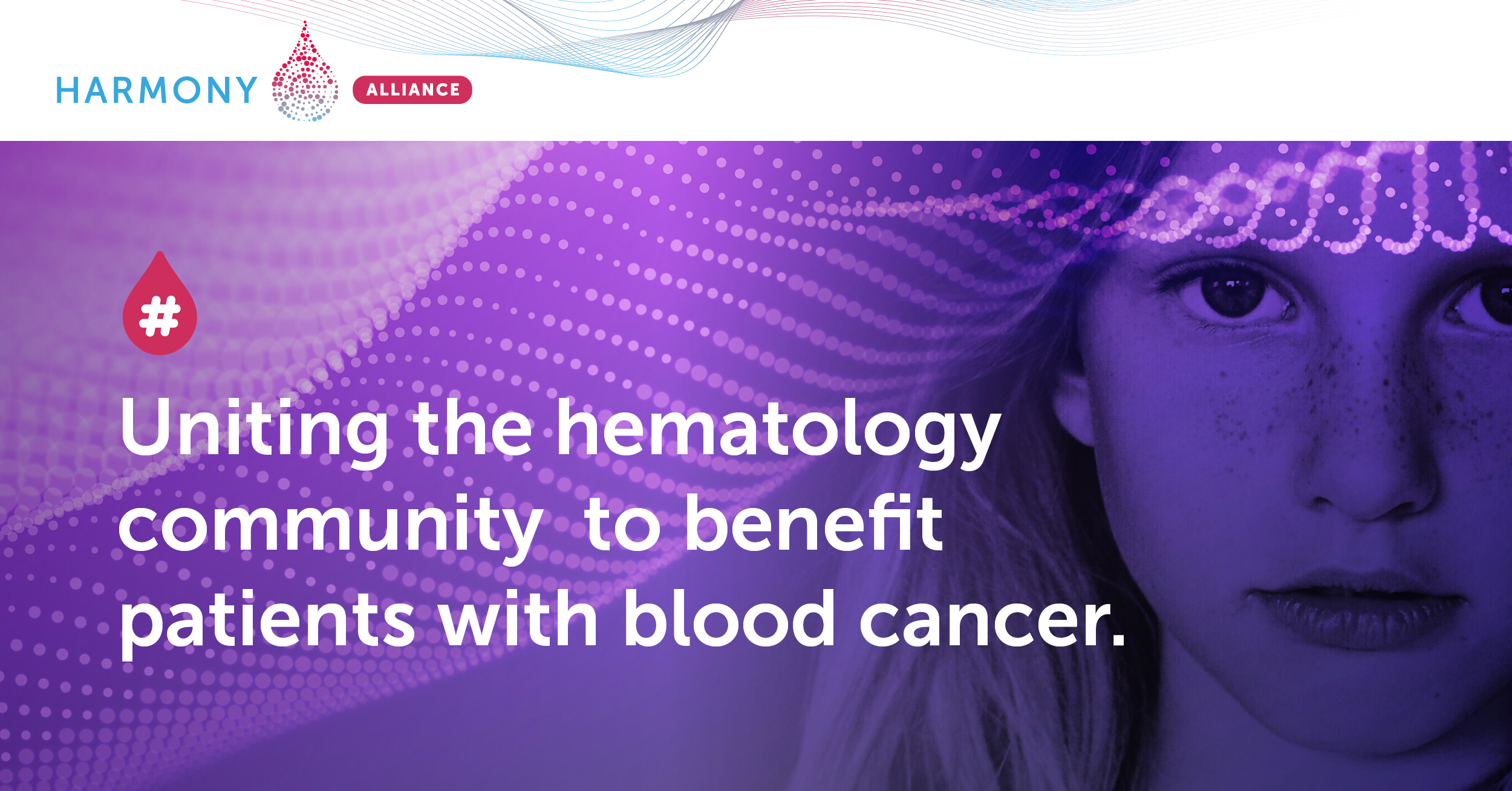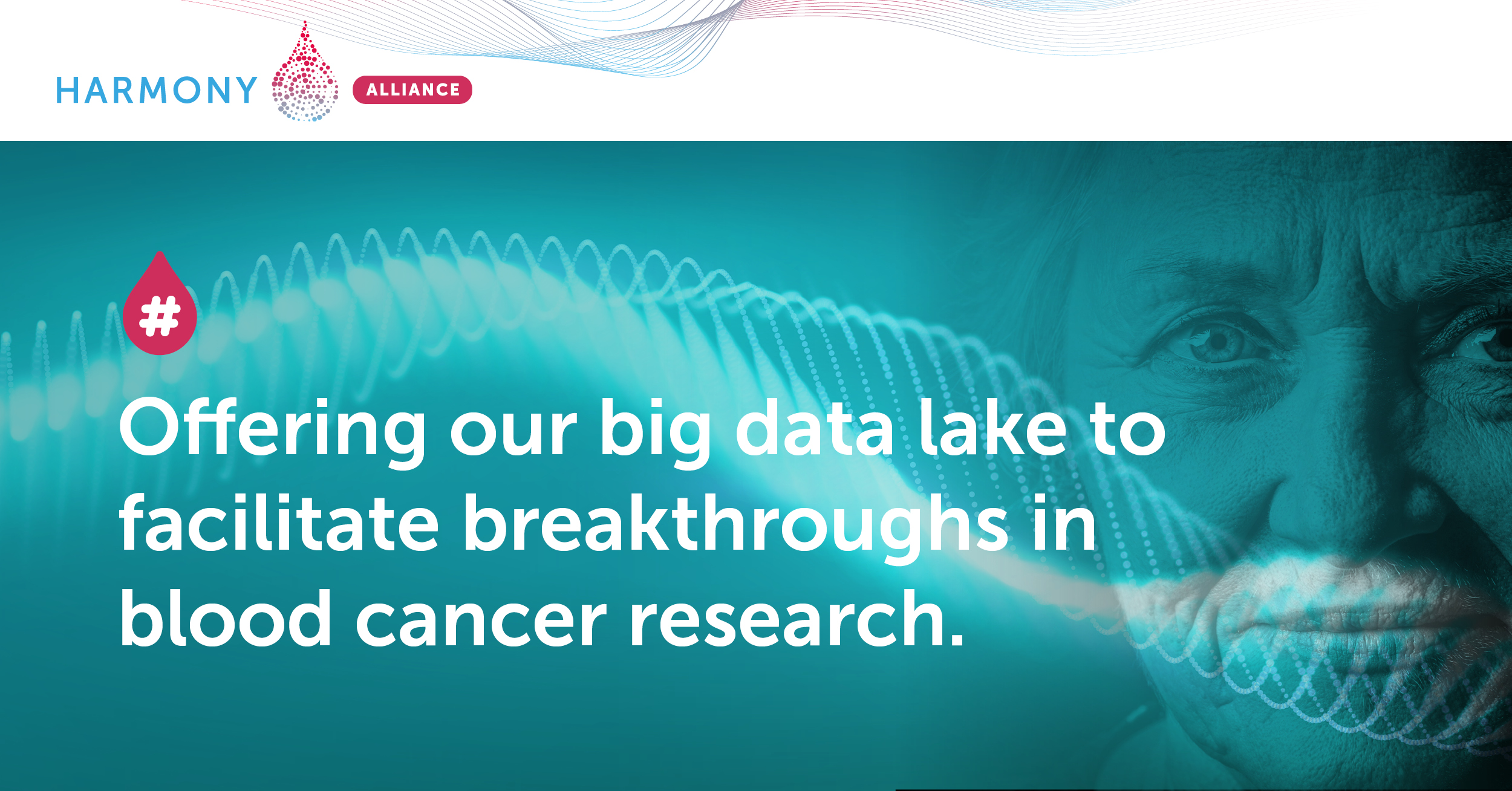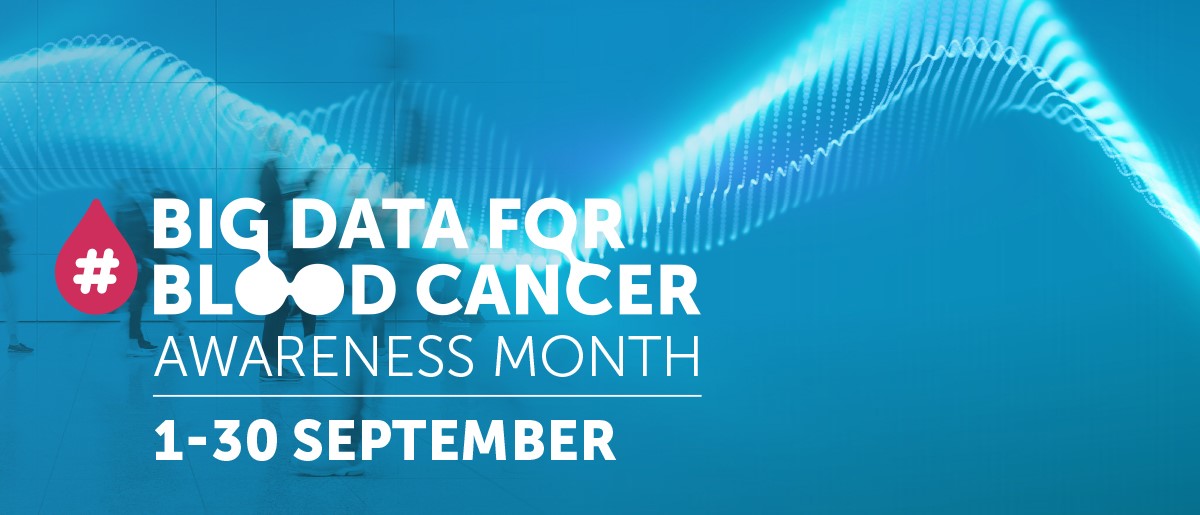
The HARMONY Alliance is a European partnership that is using Big Data analytics to speed up the development of more effective treatments for blood cancer patients. Funded by the European Commission, our partners are more than 100 organizations: European medical associations, hospitals, research institutes, patient organizations, pharmaceutical companies, IT companies, and health technology assessment/regulatory agencies. We have developed the HARMONY Big Data Platform, which currently contains more than 100,000 anonymized patient records, making it one of the largest databases of its kind. Our top research teams are using this wealth of information to answer critical questions about blood cancers that cannot be addressed with other methods.
Acute Lymphoblastic Leukemia (ALL), Acute Myeloid Leukemia (AML), Chronic Lymphocytic Leukemia (CLL), Multiple Myeloma (MM), Myelodysplastic Syndromes (MDS), Non-Hodgkin Lymphoma (NHL), Pediatric Hematologic Malignancies, Myeloproliferative (MPN) disorders and Chronic Myeloid Leukemia.
Nine European patient organizations form the HARMONY Alliance Patient Cluster. The Patient Cluster and their patient communities are involved in the defining outcomes, designing research projects, and informing patients. Read more >
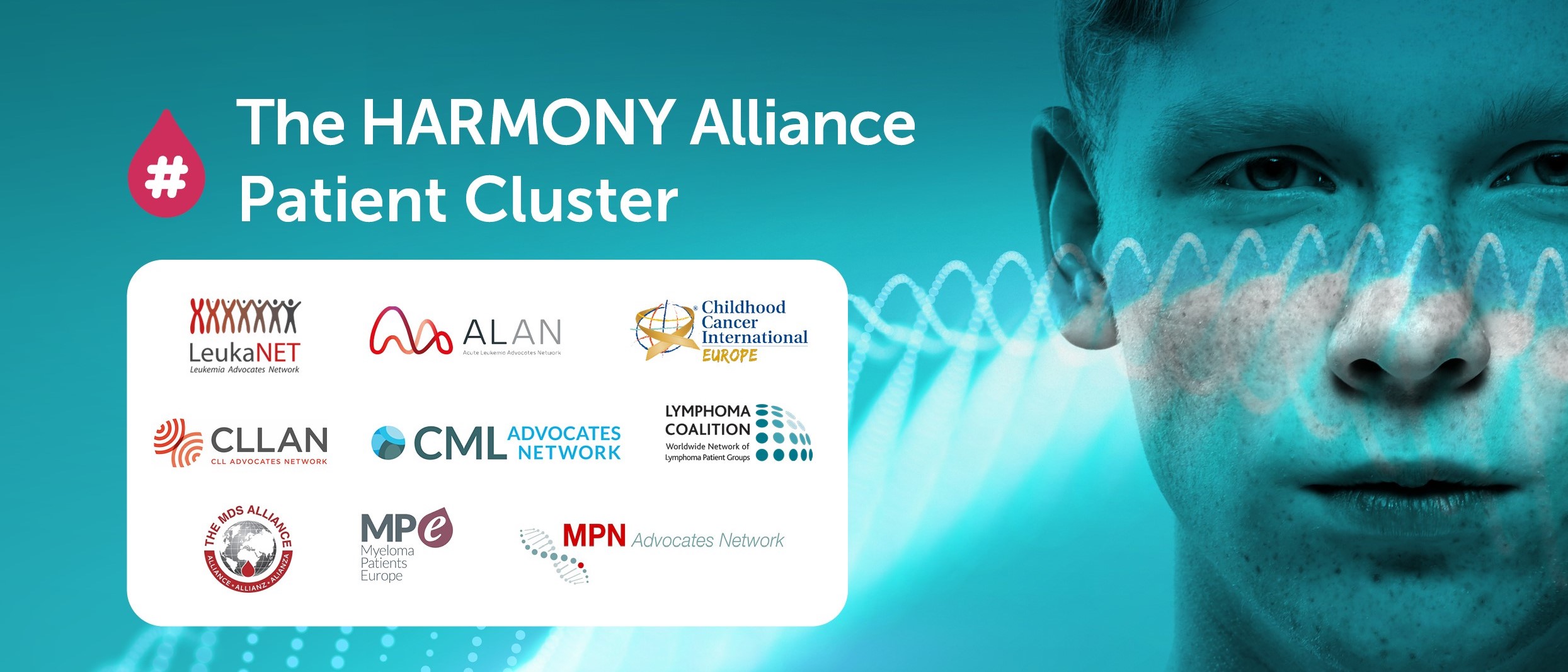
Data collected directly from patients in real-world settings and analyzed by AI has the potential to become the loudest voice in research. What patients face in their daily lives does not always reach scientists working in laboratories. These include not only the outcomes of the treatments captured precisely where the therapies are applied but also individual experiences, side effects of medications and their impact on quality of life, compliance, and unmet needs. Besides all of this, the same pill or therapy can be applied to different patients who do not fit the study cohorts: young and older individuals, with exacerbated symptoms or a mild course of disease, with comorbidities or living in different environments. What has been missing is a feedback loop between patients and scientists, close cooperation beyond the classical randomized clinical trials. It has been changing recently with the rise of technologies like Big Data, artificial intelligence algorithms, and wearable technologies that are able to collect a wide range of data. Patient Reported Outcomes (PRO) allows for more granular insights into objective, measurable patient experiences along the course of the treatment. The new bridge between individuals and science built on data gives the patients a stronger voice and enhances their advocacy.
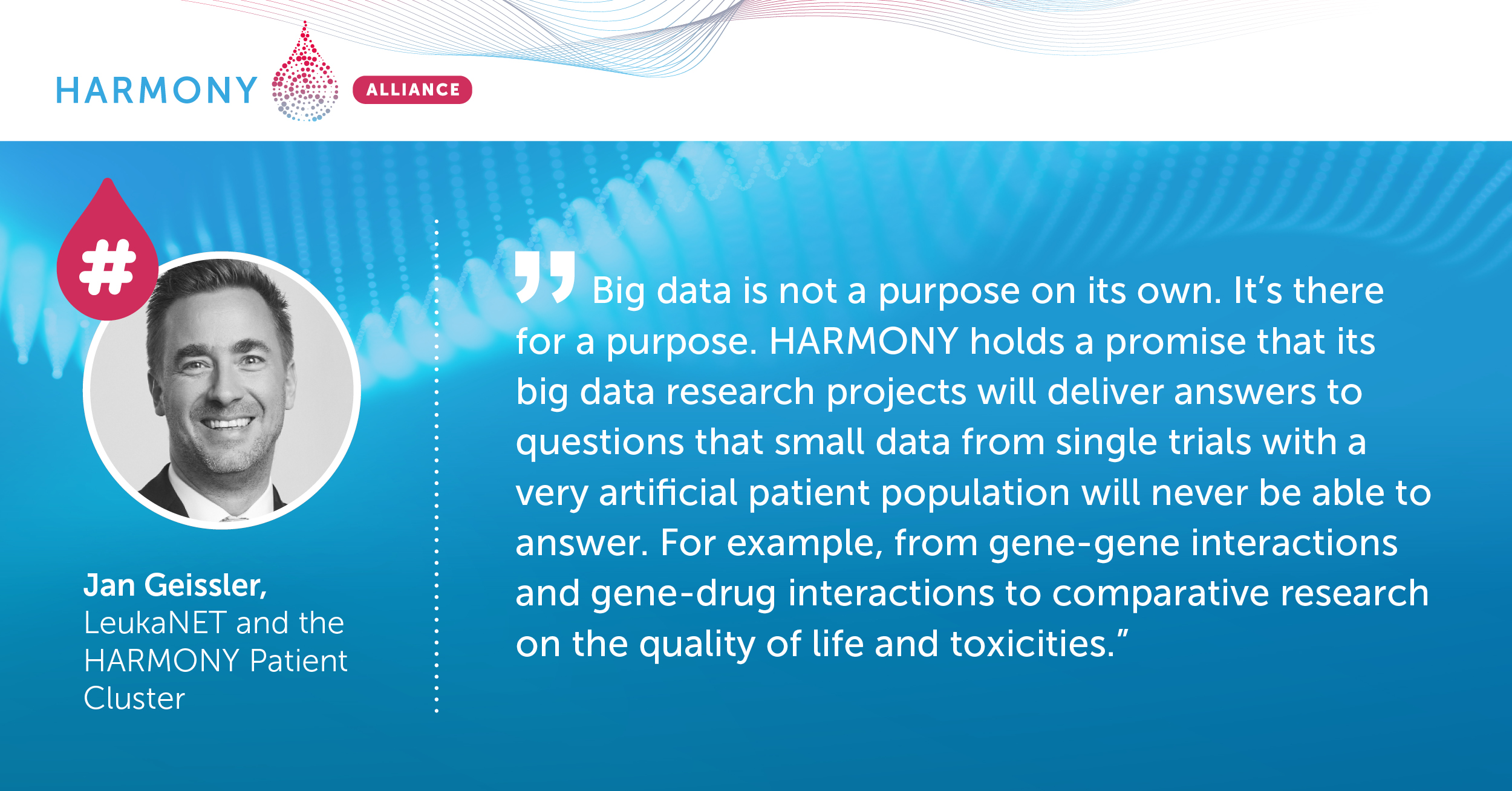
We are standing by patients with blood cancer and their families. Data-driven science will increase treatment efficacy, decrease adverse effects, prolong survival, and improve patients’ quality of life.
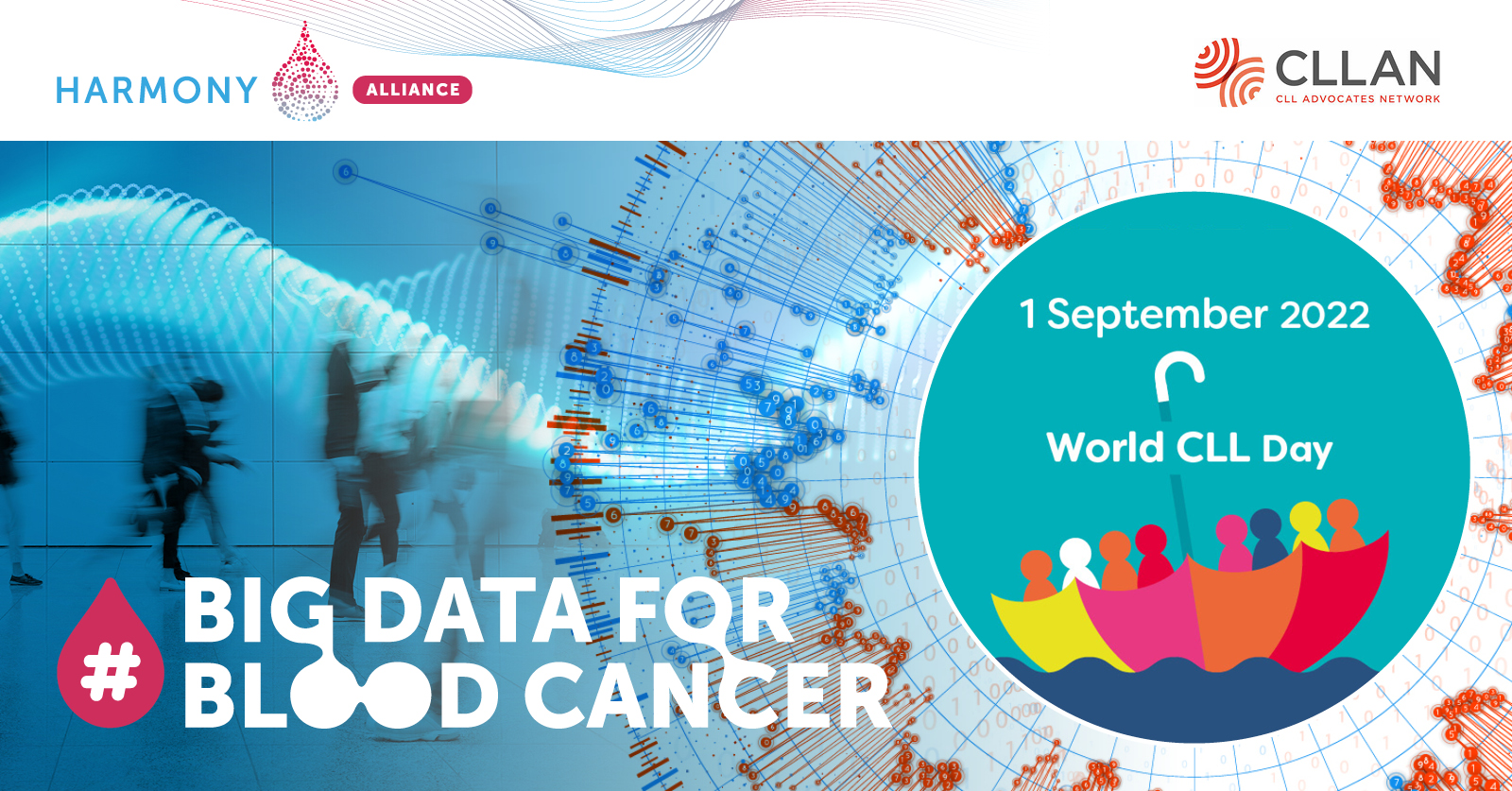
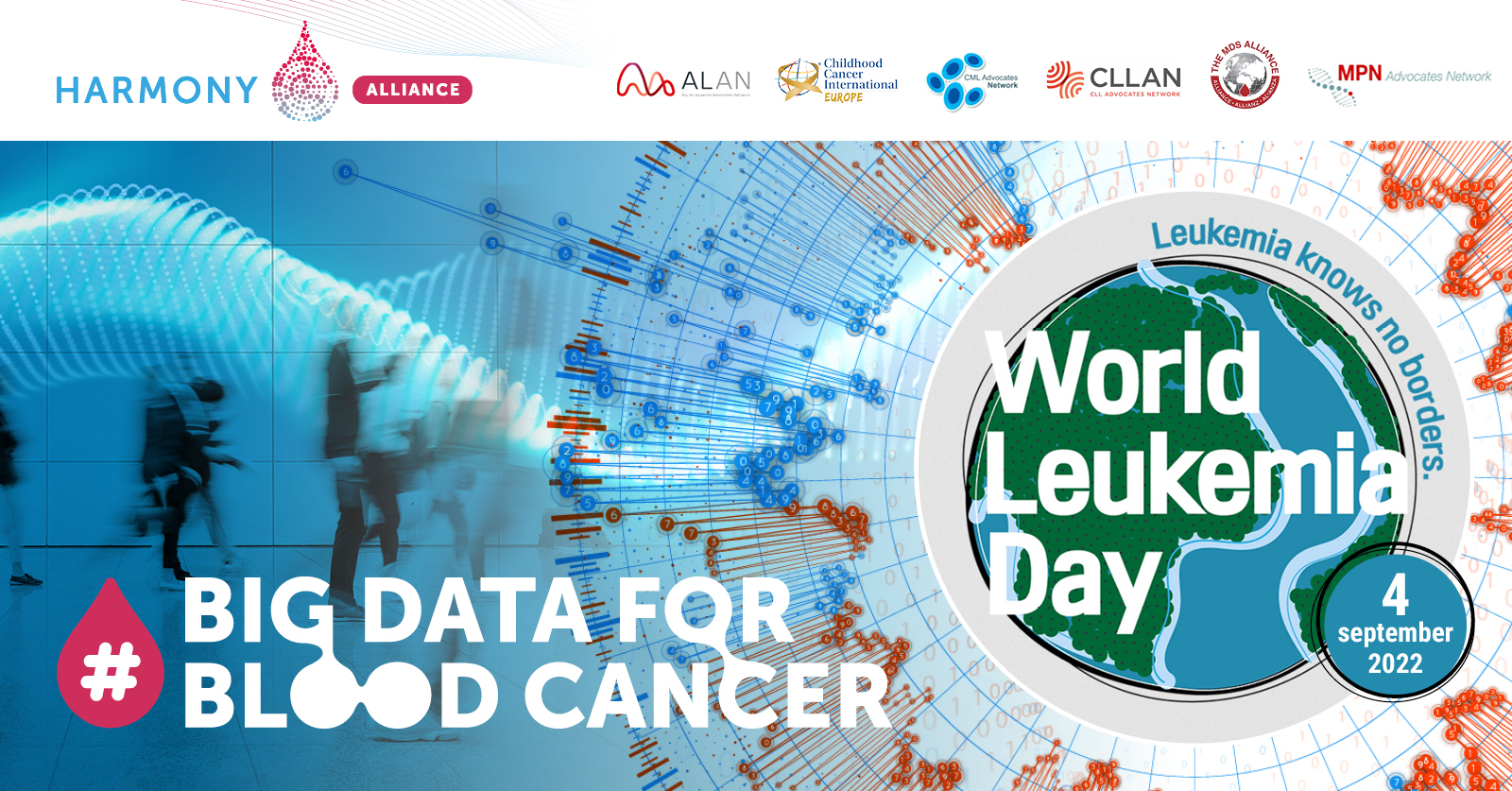
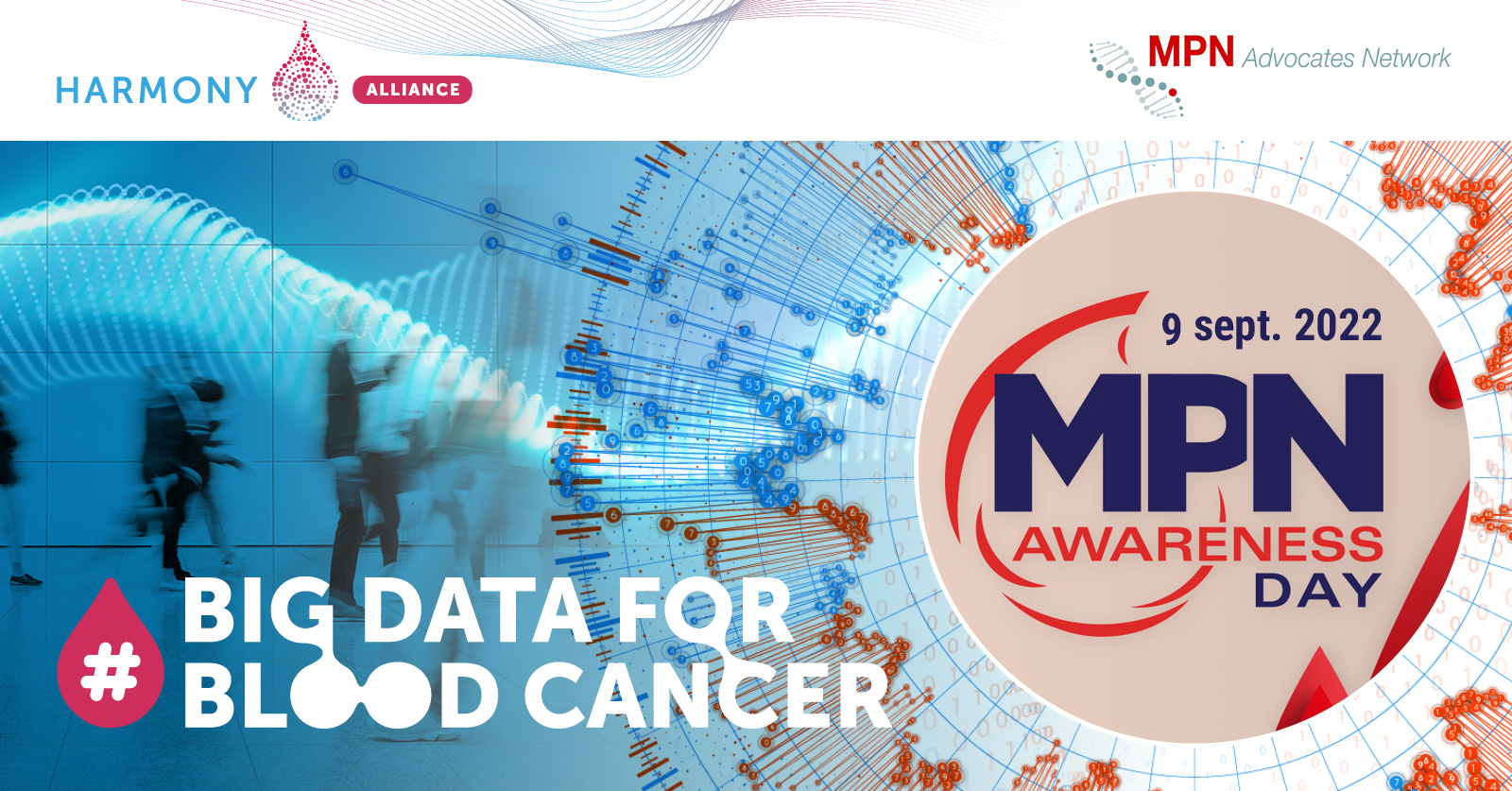
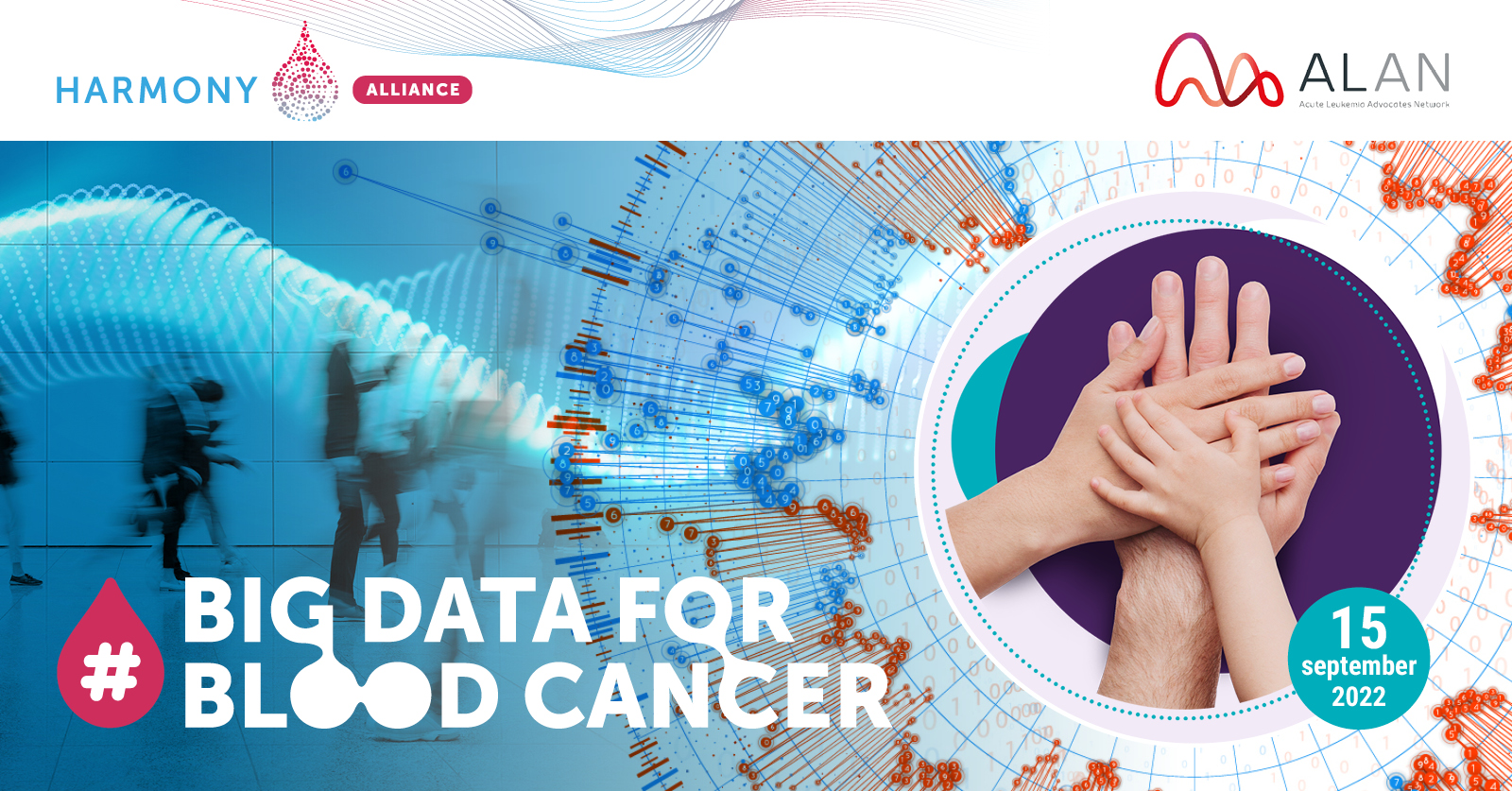
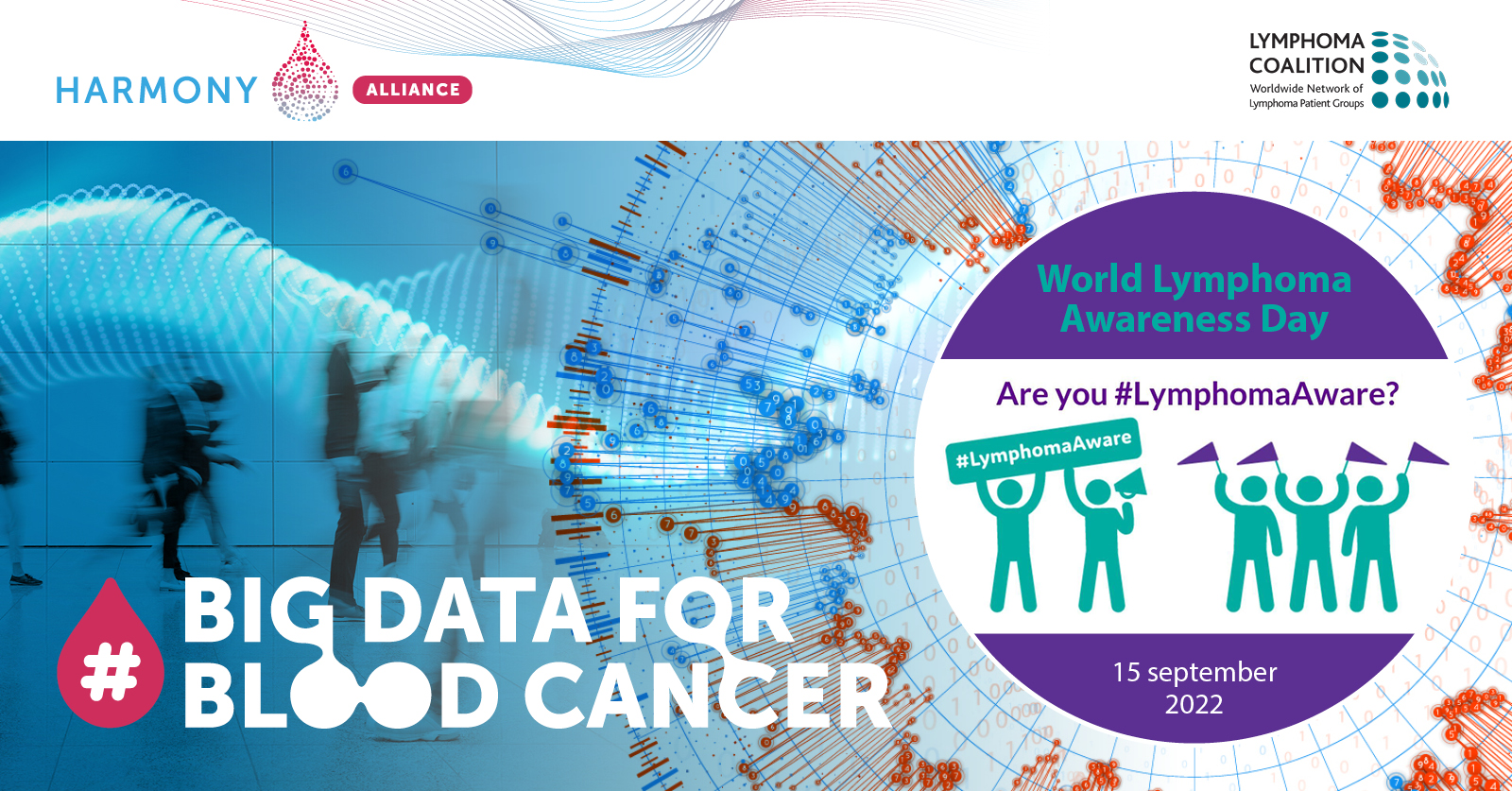
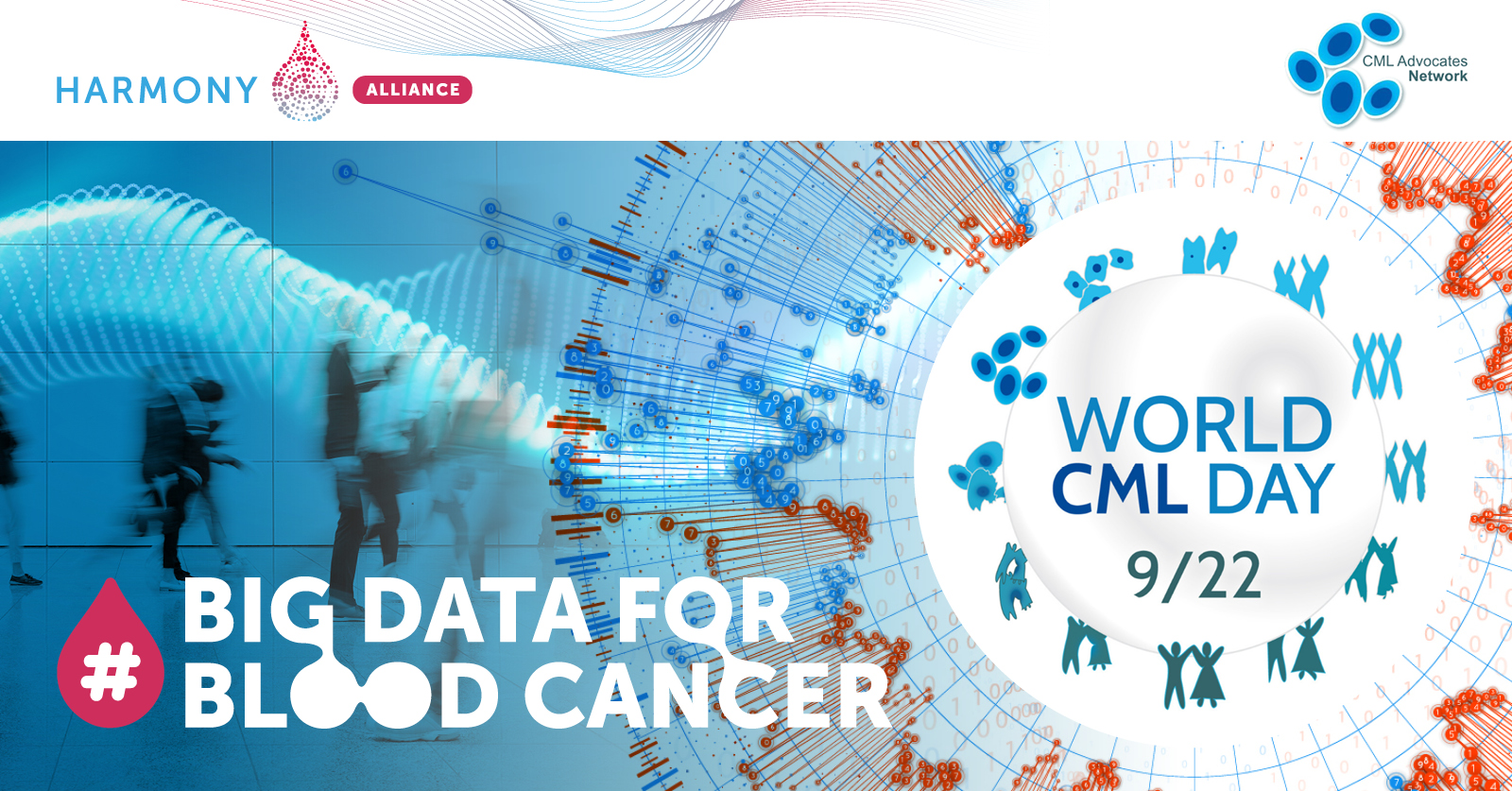
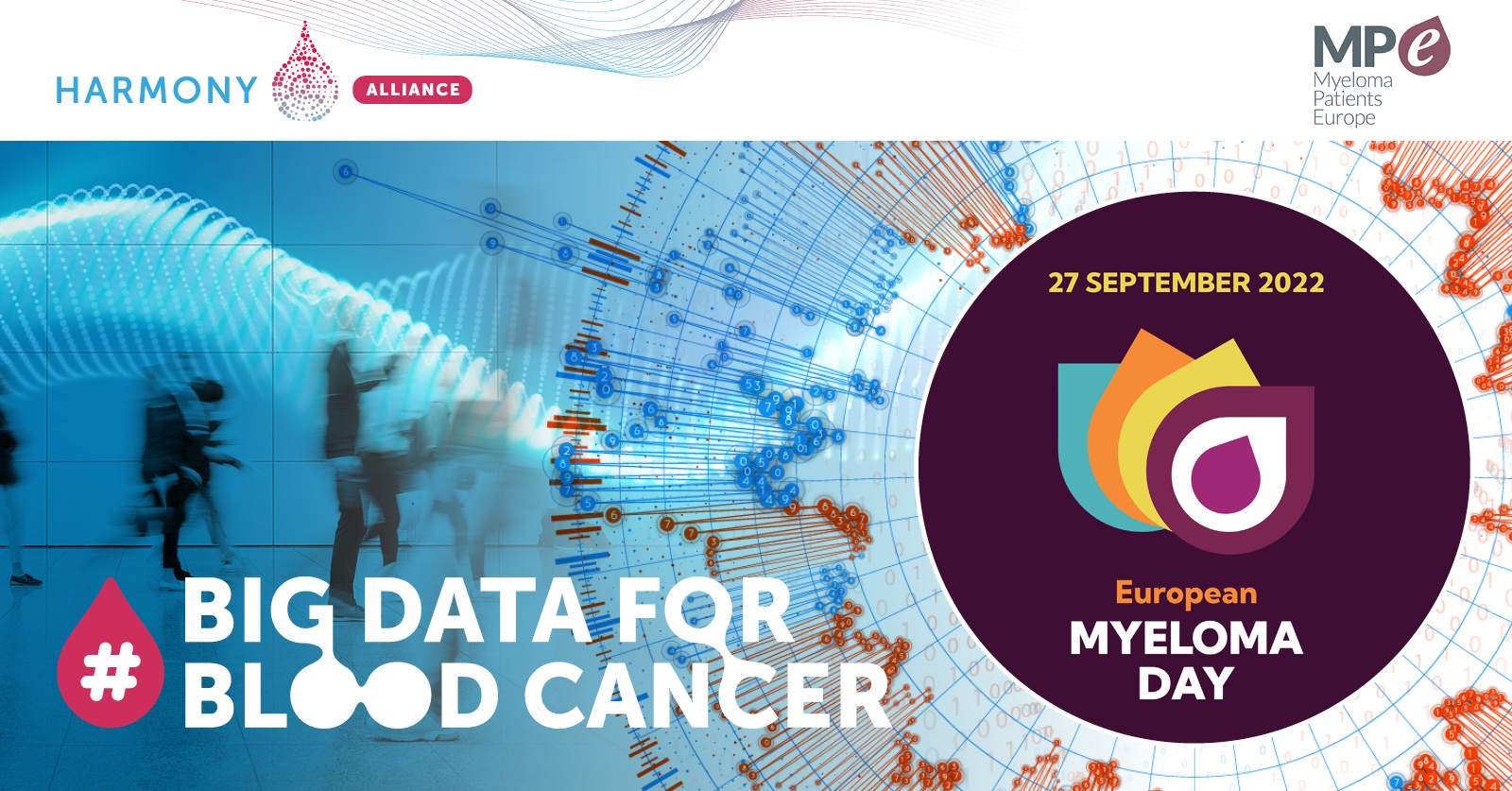
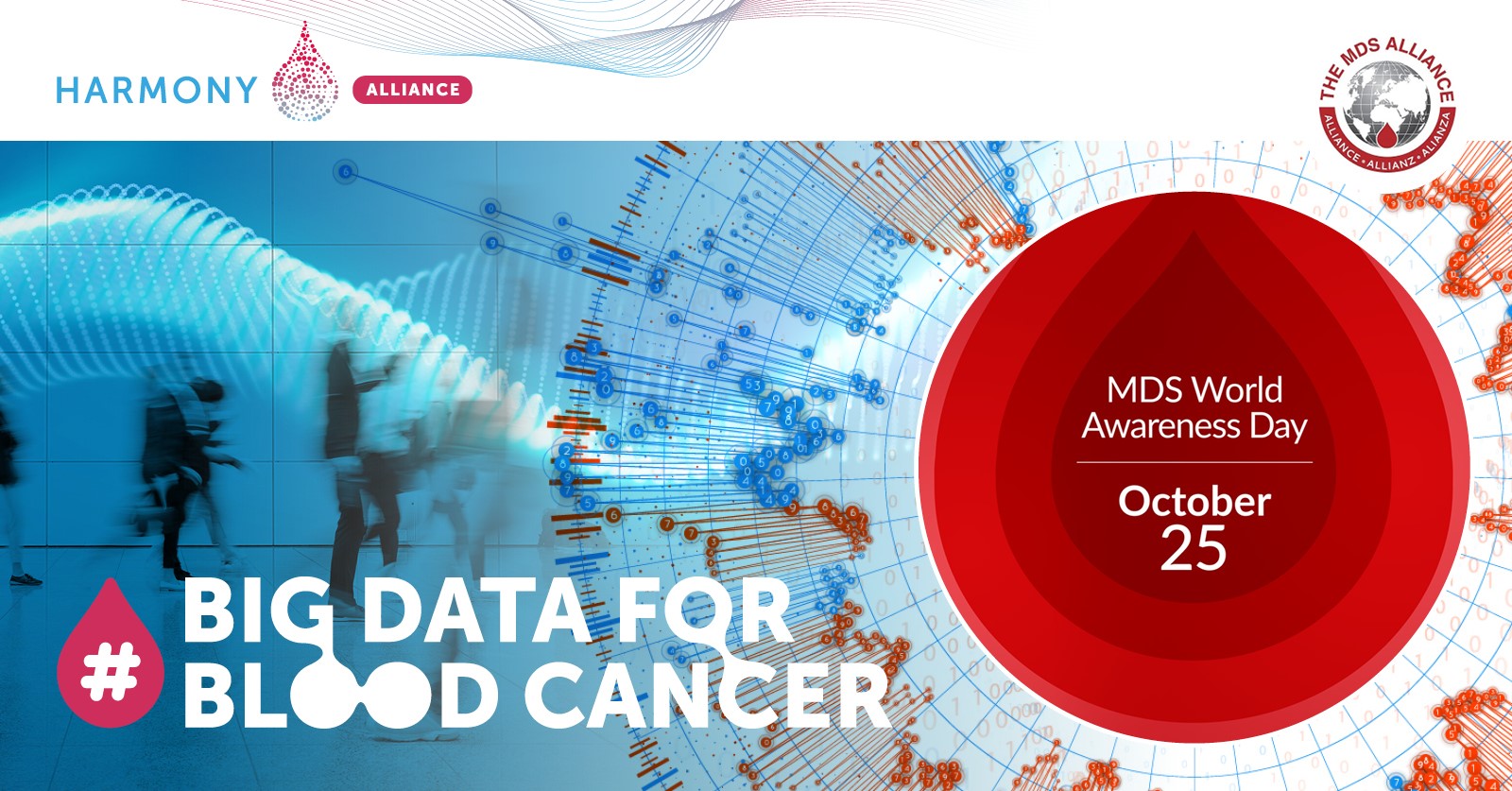
We are supporting the individual awareness days in our #BigDataforBloodCancer awareness campaign:
During Blood Cancer Awareness Month and during the 2nd Big Data for Blood Cancer Awareness Day - 30 September 2022 - we are taking the opportunity to connect with the various blood cancer awareness campaigns on social media. A valuable moment to explain how collecting #patient data can improve the treatment of #bloodcancer.
